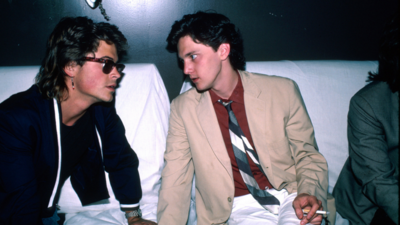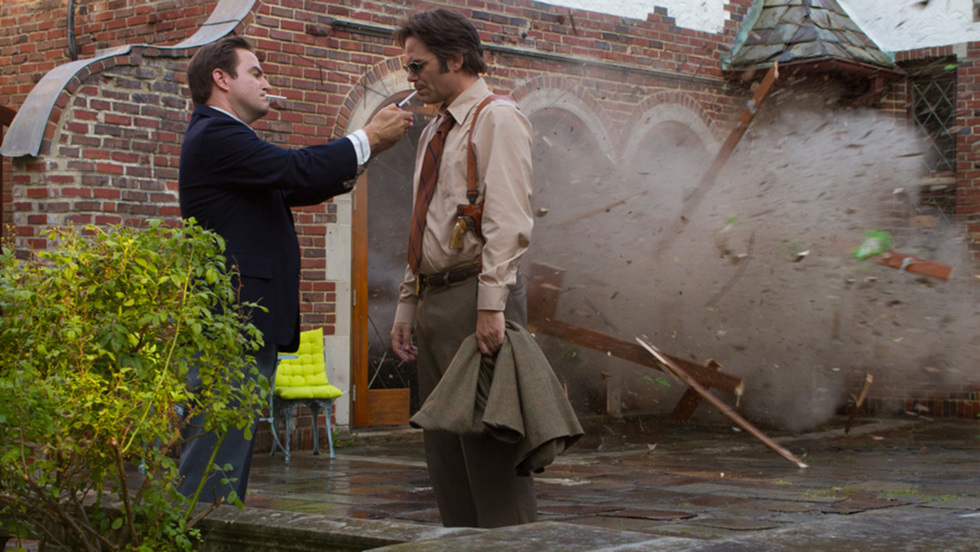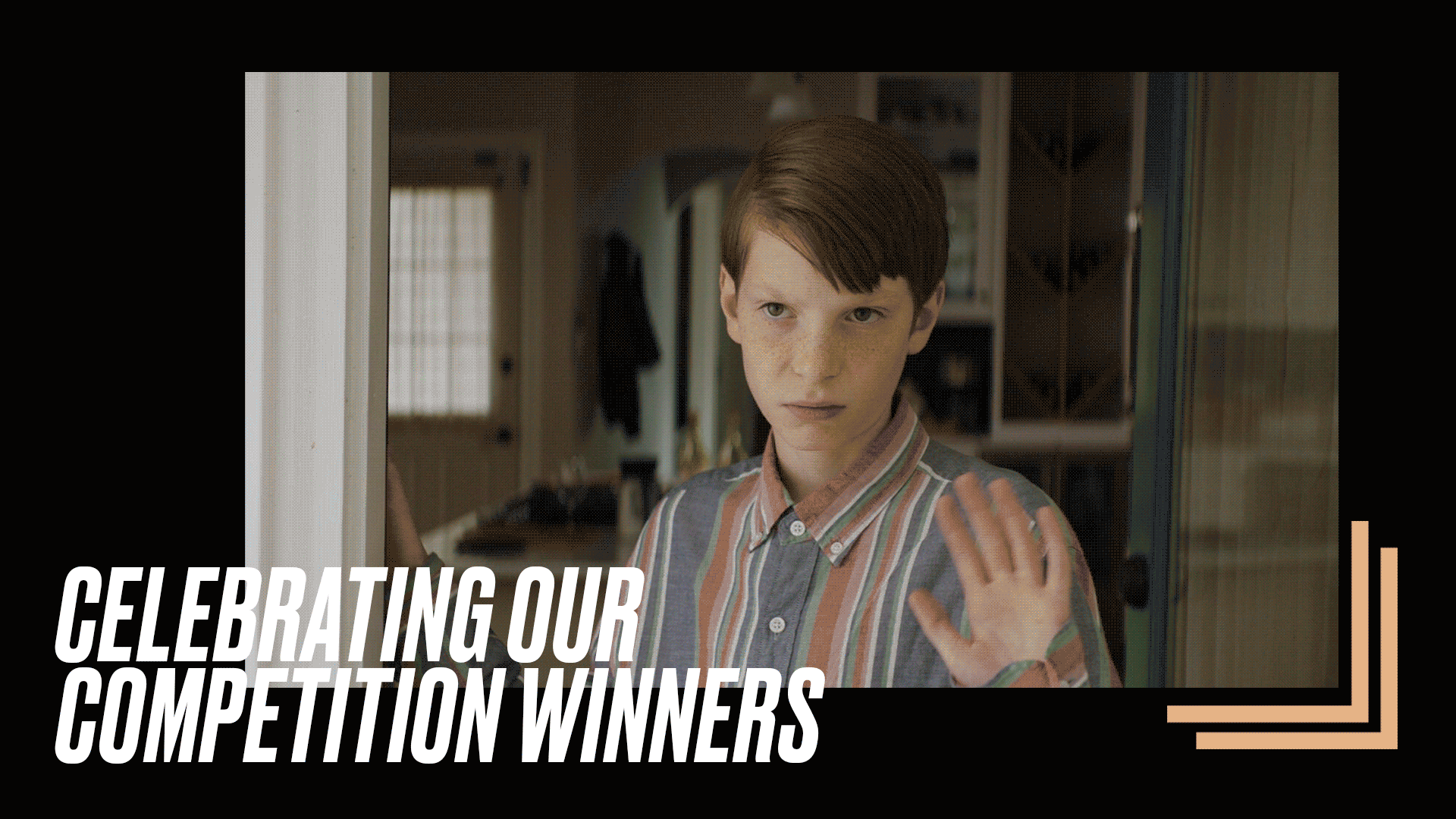
BY KAREN KEMMERLE |
Can You Dig It?
Charles Matthau, son of the legendary Walter Matthau, talks about the challenges of adapting Elmore Leonard's acclaimed novel, Freaky Deaky. It's groovy, baby.

TRIBECA: Tell us a little about FREAKY DEAKY. How do you describe the movie in your own words?
CHARLES MATTHAU: A fun, sexy romp through Elmore Leonard’s Detroit, circa 1974.
TRIBECA: It is widely reported that FREAKY DEAKY is one of Elmore Leonard’s favorite novels that he has written. What were the challenges of adapting FREAKY DEAKY for the screen?
CHARLES MATTHAU: The last time I adapted a noted writer’s work to the screen was Truman Capote’s THE GRASS HARP, which was set in 1930s Alabama and could not be more different in tone and pace than FREAKY DEAKY. With FREAKY DEAKY, I had the additional pressure of Elmore being very much alive and with us, and I was hopeful to not disappoint him. This particular story requires a heightened reality, yet shouldn’t come off as too cartoonish. I also wanted the film to feel like it was made around 1974, reflect some of the writer and filmmaker’s quirks, and not come off as too polished or predictable.

TRIBECA: Can you talk about the decision to change the time period from the 1980s to 1974?
CHARLES MATTHAU: The idea was actually Elmore’s, because the story did not seem to work in the present. And I thought 1988 was kind of a boring year. My first draft of the script was set in the present, but I had to make the antagonists eco-terrorists, because if they were former radicals they would be too old and pathetic. Elmore read the draft and said that the story worked but that it was “just another movie” and that he “wrote Freaky Deaky because of the hippies.”
I told Elmore that I thought 1988 was a boring year and would also prefer a younger cast who might be more likely to engage in homicidal stupidity like Robin and Skip. Elmore called me back a few days later and said, “Let’s set our film in 1974. You’ll have your young cast, a fun year, but also a year in which society was changing in ways more reflective of the characters in the book.”
TRIBECA: FREAKY DEAKY did an exceptional job of evoking the look and the feel of the 70s exploitation genre. What are the difficulties of shooting a period piece on a low budget?
CHARLES MATTHAU: First of all, thank you for the compliment. You need to keep the look consistent throughout the film; otherwise, one contemporary shot can ruin the whole mood. Obviously, this is made much more difficult on a small budget, because even a simple shot like a character walking across the street cannot have signage, architecture, clothing, vehicles, etc. post 1974. We had the benefit of a fine production designer, Tom Southwell, who really stretched his budget and gave us the look we wanted.
FREAKY DEAKY was also the first period piece that I’ve directed where I actually lived through the period. For THE GRASS HARP, I had to do research about Alabama in the 1930s. But Freaky was more fun because I had confidence in my personal memories of the 70s.
TRIBECA: From inception to print, can you give us a sense of your timeline? How long have you been working on this project?
CHARLES MATTHAU: I’ve been working on it for about six years, from the time I first met Elmore and read the novel. During that time I did make a musical, Baby-O, which is set in the jazz world of Las Vegas. Other than that, however, FREAKY DEAKY was my priority.
TRIBECA: FREAKY DEAKY stars some pretty eccentric actors: Christian Slater, Andy Dick and Crispin Glover, to name a few. Can you tell us about the casting process?
CHARLES MATTHAU: We were very lucky in casting FREAKY DEAKY that we were able to cast based on an actor’s appropriateness for the role, as opposed to their pre-sales value in Kathmandu. I love our cast because they themselves have a freaky, quirky and unpredictable element to them. With Christian Slater, Crispin Glover, Andy Dick and Mr. BLACK DYNAMITE himself, Michael Jai White, the audience doesn’t know what to expect.
TRIBECA: As the writer/director, what was your biggest challenge/lesson learned during the making of FREAKY DEAKY?
CHARLES MATTHAU: If you look at Elmore’s career, he started off writing Westerns, then turned to gritty crime novels, and in his later years has gotten more humorous. FREAKY DEAKY was written about the same time as GET SHORTY and is heavy on the humor. The two plots in Freaky concern an insane moneymaking scheme cooked up by some disturbed acid heads and a former Black Panther trying to smooth talk his way into the will of an alcoholic playboy. Thus, the film depends heavily on character based humor and not on a thriller–like plot. That can be tricky to pull off, but I believe our wonderful actors did just that.

TRIBECA: Do you have some advice for aspiring filmmakers? Is there one particular lesson you have learned?
CHARLES MATTHAU: Billy Wilder told me he used to drive to Paramount every day and on his way to work would pass a flower shop at Crescent Heights and Melrose. Every time he’d see the flower shop on the way home, he’d think about how he’d screwed up that day and how he should have done things. The lesson I took from that was that if directing was like that for a genius like Wilder, you had better enjoy the process and treat everything as a learning experience.
TRIBECA: Good advice! What are you most looking forward to at Tribeca?
CHARLES MATTHAU: Getting the chance to see some new films and meet some new filmmakers.
TRIBECA: If you could have dinner with any filmmaker (alive or dead), who would it be?
CHARLES MATTHAU: Woody Allen.
TRIBECA: What’s your favorite New York movie?
CHARLES MATTHAU: THE SUNSHINE BOYS, because it’s the funniest film I’ve ever seen and my favorite performance of my father’s.
TRIBECA: What would your biopic be called?
CHARLES MATTHAU: THE OLD JEW THAT CAME IN FROM THE COLD.
TRIBECA: What makes FREAKY DEAKY a Tribeca must-see?
CHARLES MATTHAU: I think the film is unusual in today’s marketplace, and I hope that it reflects a filmmaker’s vision like the 70s films it emulates. I am always most interested in films that are made with a point of view, even if the director (as may well be the case here) is a schmuck.
 Charles Matthau directed the critically acclaimed The Grass Harp, based on Truman Capote's novella and starring his father Walter, Jack Lemmon, and Sissy Spacek. He also directed the feature films Baby-O, Her Minor Thing, and Doin' Time on Planet Earth. He is currently in pre-production on his next feature, The Sugar Shack.
Charles Matthau directed the critically acclaimed The Grass Harp, based on Truman Capote's novella and starring his father Walter, Jack Lemmon, and Sissy Spacek. He also directed the feature films Baby-O, Her Minor Thing, and Doin' Time on Planet Earth. He is currently in pre-production on his next feature, The Sugar Shack.

